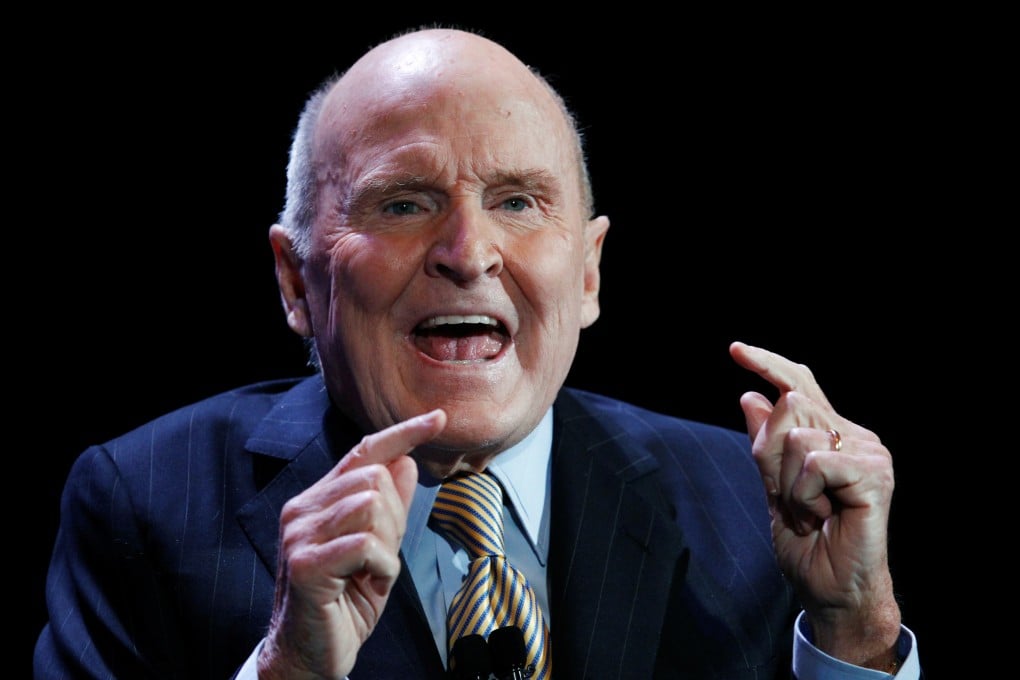‘Manager of the century’ Welch remembered by Chinese corporate leaders such as Jack Ma, Guo Guangchang
- Welch’s philosophy key to Alibaba’s core ‘kung-fu’ values: Hupan University
- Liu Chuanzhi says he learned from GE chief how to diversify Lenovo’s business

Jack Welch, who died on Monday at the age of 84, was very highly regarded in mainland China, where he engaged with the who’s who of Chinese business leaders.
Top names such as Alibaba Group Holding’s Jack Ma, Guo Guangchang, the chairman of Fosun International, Liu Chuanzhi, who founded Legend Computers, which later became Lenovo, and Zhang Ruimin, chairman of home appliances maker Haier, have said they took inspiration from the “manager of the century” when building their own business empires during a period of breakneck growth in the Chinese economy over the past three decades.
Welch ran American conglomerate General Electric from 1981 to 2001 and turned it into the world’s most valuable company. Thousands of Chinese entrepreneurs have read his bestselling books “Winning” and “Jack: Straight from the Gut”, as they searched for insight into his management philosophy.
Hupan University, a programme founded by Ma for entrepreneurs, said on Tuesday that Welch’s philosophy played a key role in helping Alibaba create its core “kung-fu” values in its early days. “The values ushered in a unique appraisal system and became a constant driving force for Alibaba ever since, which built up businesses with its own mission and vision,” it said.
According to Hupan, Savio Kwan Ming Sang, a former GE executive who was Alibaba’s chief operating officer until 2012, played a crucial role in the creation of the so-called Nine Vein Spirit Sword values. He introduced a rewards system that was new to mainland Chinese companies, something he took from the GE playbook.
When Ma, China’s wealthiest person according to the Hurun Global Rich List with a net worth of US$45 billion, met Welch and dined with him at Bill Gate’s home in July 2008, he thanked Welch for grooming Kwan.
Alibaba, the South China Morning Post’s parent company, has grown from a start-up with just 18 employees into the world’s largest online retailer, and has a market cap of US$566 billion to date.